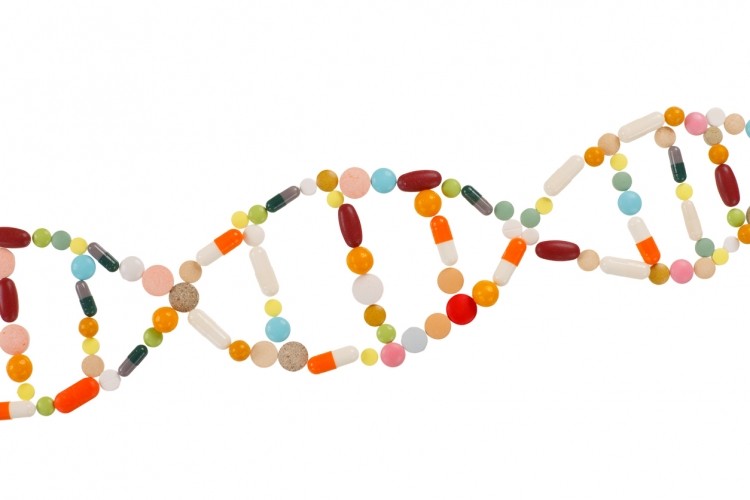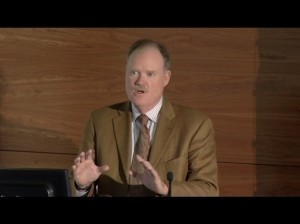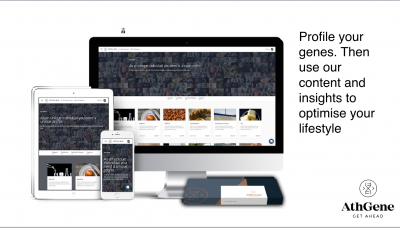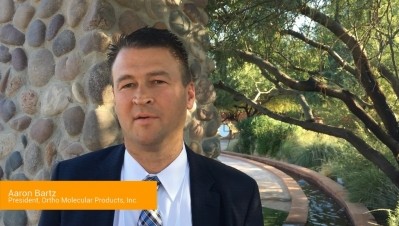Special Edition: Personalized Nutrition
Dr Jeff Bland: ‘Gene-based information is re-writing nutrition science in a way that is inconsistent with the current regulations’

The Human Genome Project, which ran from 1990-2003, has led to the development of technology that allows everyone to become a genetic scientist, even high school students, Dr Bland, president of the Seattle-based Personalized Lifestyle Medicine Institute (PMLI), told NutraIngredients-USA.
And this new gene-based information is re-writing the underpinning of nutrition science in a way that is not consistent with the current regulatory environment.
“In the end who will win out? Does science ultimately win out? I don’t know but I know that you cannot define nutritional needs based on an average,” he said. “Will the change be consumer driven (think, “the patient will see you now”) or will there be enlightened regulators who drive out the old guard or wait for them to move on?”
Biochemical individuality
While many see the field of nutrigenomics and personalized nutrition as a recent development (the term “nutrigenomics” was coined in late 1990s), but the concept goes back to Roger Williams’ Biochemical Individuality (1956) and Linus Pauling’s “orthomolecular medicine”, said Dr Bland.
“These concepts converged to give birth to the nutritional supplements industry, which moved away from mom and pop stores to mass retail,” he said.
“Vitamin C was the first mass nutritional supplement and there is a nutrigenomic connection,” added Dr Bland. Vitamin C is manufactured in most mammals, with the exception of humans, higher primates, Guinea pigs, and fruit bats. “If you look at goats, which weigh about the same as humans, they make grams of vitamin C per day from glucose in their livers, and will make more when stressed. But humans, who lack that necessary L-gulonolactone oxidase enzyme [which converts glucose to vitamin C], are only recommended to consume milligrams per day. This is the basis of orthomolecular medicine or nutrition. Needs differ from person to person.”
[According to a 2008 paper in Cell, goats can produce 200 mg/kg each day, whereas humans are recommended to consume just one mg per kg of body weight.]
“That concept broadened but never had the scientific teeth for the “traditional” nutritional scientists, until we entered this age of being able to measure the impact of genetic individuality,” said Dr Bland.
Stratification
Dr Bland said that, while personalization is still early and the –omics information is just starting to filter through, the impacts can already be seen from an industry perspective. “There used to be a clear division between food and supplements, but the field is stratifying,” he said. “There is much more diversity. When you start looking at the new business models they are agnostic and focused on improving the health and wellness of a person.”
Companies like Habit, Arivale, InsideTracker, DNAfit, DayTwo, and Nutrigenomix to name but a handful have burst onto the scene in recent years, and the landscape remains very dynamic, said Dr Bland.
“Many companies may be holding back because of the developing science but if you move with it, you must move in an intelligent way. No one has all the answers. If companies wait, they will be lost. If they move too aggressively, then that carries huge risk. The mid-point is to take what we are finally starting to see with randomized control trials showing how personalized diets can have a significant impact. Those are the real studies to focus on”
From diagnostic to prognostic
The impacts of this brave new world extend into the healthcare industry and the medical community, which have traditionally been focused on treating disease and not promoting health and wellness.
“You must understand that we are our own running record of our own response to the environment. Serial analyses are much more important. Life management companies understand this. This is a continuity of care. The cholesterol test changed the nature of the whole development of preventive medicine to see if a patient is moving towards or away from a disease risk,” said Dr Bland.
“Cholesterol is not a disease, but it is evidence of risk of disease. We are now measuring repetitive samples over time to trace the trajectory of risk, up or down.
“Another example is pre-diabetes,” he said. “Someone with a glycated hemoglobin (HbA1c) level of 6.1% are pre-diabetic. They don’t have diabetes and a lifestyle program could bring the HbA1c back to normal levels, but they need to come in every 90 days. This is prognostic, not diagnostic. This is a fundamental juncture point. You need to keep monitoring. This directly implicates diet and lifestyle.
“And this is a new business model. You are creating a customer for life, but they are a customer for health.”










